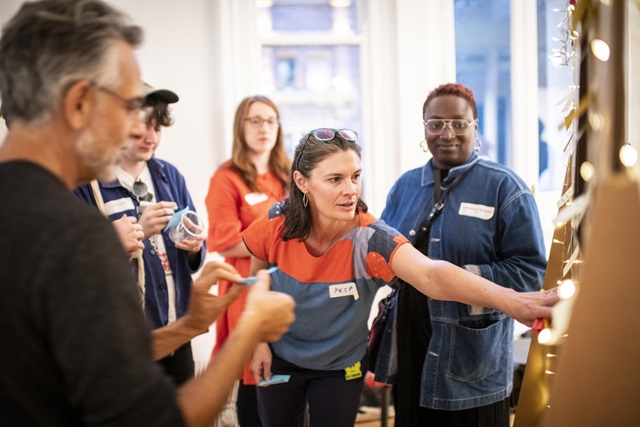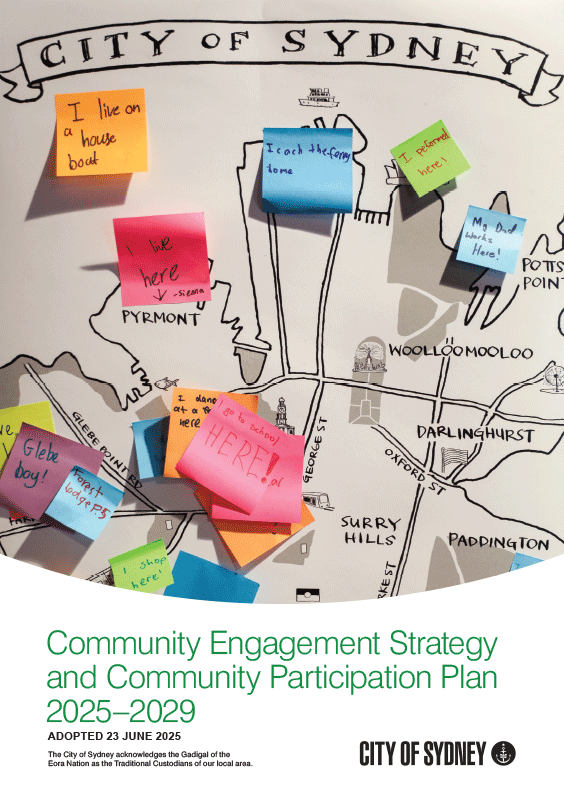Share your view on our revised code of meeting practice
We invite your feedback on the updated policy.
Under review
Why we’re doing this
All councils must adopt a code of meeting practice. This code must include the mandatory provisions set out in the NSW model code of meeting practice for local councils.
The Office of Local Government released a new model code of meeting practice for local councils on 29 August 2025. The new model code takes effect on 1 January 2026.
Our code of meeting practice includes all the mandatory provisions from the model code, along with some optional provisions and additional rules specific to the City of Sydney.
What is a code of meeting practice?
The code of meeting practice ensures all Council meetings are:
- consistent, orderly and efficient
- fair and respectful for all councillors and other meeting participants
- conducted with transparency including clearly defined rights and obligations.
Opportunities for community members to address meetings
The Office of Local Government is clear that Council and committee meetings are exclusively for councillors to discuss and make decisions. Under the new code of meeting practice, community members will no longer be allowed to speak on agenda items during committee meetings.
The draft code of meeting practice includes new mandatory provisions which state that Council may hold public forums before meetings. Committee and Council meetings will be open for the public to observe either in person or online. When the Office of Local Government publishes guidance on how it expects public forums to be run, we’ll update the community.
Key changes
Key changes to the mandatory provisions include:
- Lord Mayor can now call extraordinary meetings without requiring additional councillor signatures
- councils can now deal with urgent business at a meeting without prior notice, provided all councillors are present and the Council passes a resolution to do so.
- briefing sessions can't be held on matters listed on meeting agendas. Any information given to a councillor about an agenda item must be made available to the public.
- the definition of 'acts of disorder' has been expanded, and there are new rules about when councillors and members of the public can be expelled from meetings.
- councils must include provisions for public forums in their code. Public forums must be held separately from committee or Council meetings.
- councillors can now only attend meetings by audio-visual link if they're unwell or have unforeseen caring responsibilities.
- Lord Mayor can put minutes to the meeting without notice on any matter they consider appropriate.
- Confidential information presented at closed meetings must be published once it's no longer confidential. We'll develop administrative procedures once the Office of Local Government releases guidelines on this matter.
Where the model code offers options, we've chosen provisions that align with our current practice:
- Voting at meetings – All votes at Council meetings (including closed meetings) must be recorded in the minutes, showing which councillors voted for and against each motion or amendment, including use of the casting vote.
- Expelling people from meetings – All meeting chairpersons are authorised to expel people (including councillors) from meetings. This doesn’t limit the Council's or a committee's ability to expel a person under section 10(2)(a) of the Local Government Act 1993.
This version shows the proposed updates to the current policy with changes marked up.
How you can give feedback
Consultation closes at 5pm on Wednesday 26 November 2025.
We'll accept submissions until Wednesday 10 December.
-
Complete our survey
You’ll need to log in with a City of Sydney account to complete the survey. If you don’t have an account, it’s easy to create one.
-
Email or post your feedback
You can give your feedback by email to [email protected] or post to:
Erin Cashman
Manager OCEO, Chief Executive Office
City of Sydney
456 Kent Street
Sydney NSW 2000 -
Talk to us
Please quote ‘Reference: X116933.047 – Revised code of meeting practice.


